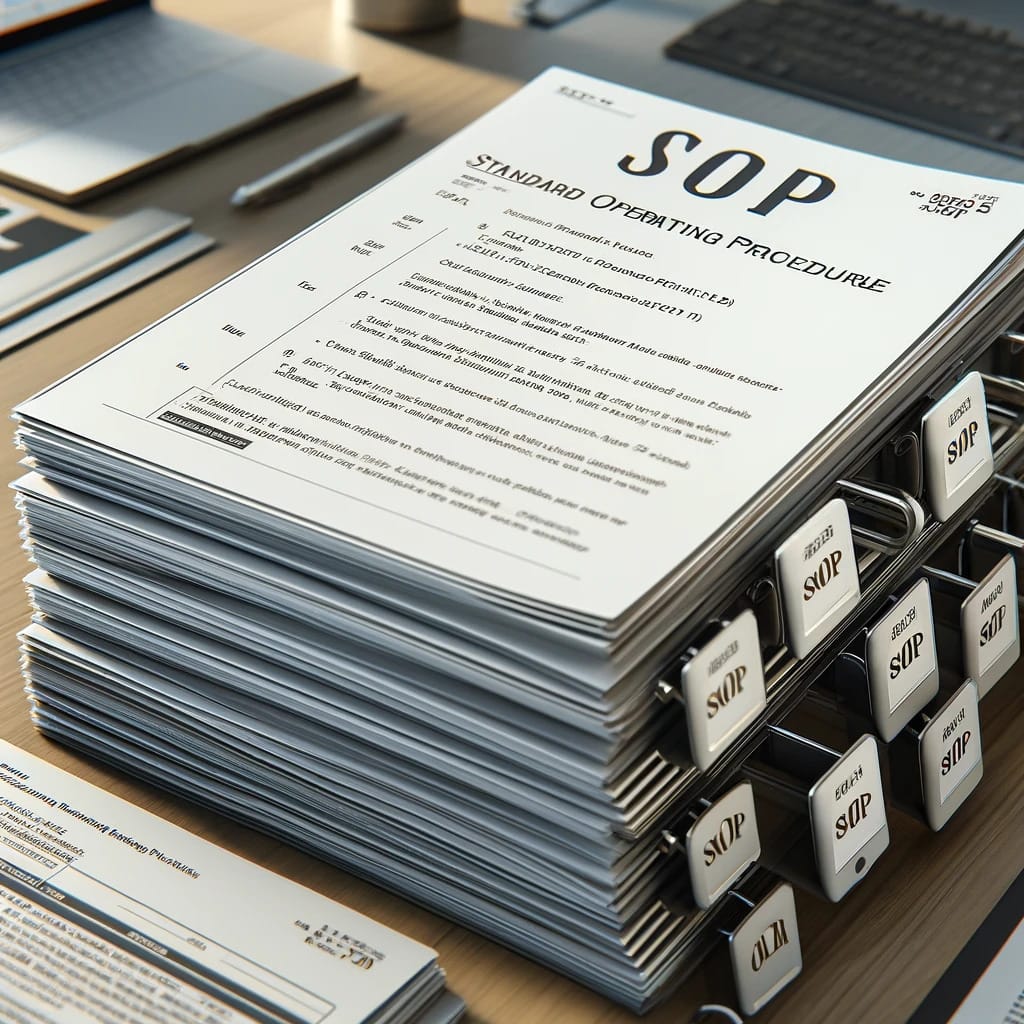Are you working in alignment with your natural strengths and rhythm, or are you trying to force yourself into someone else's playbook?
Understanding your unique personality type can be the key to unlocking sustainable productivity and finding more productive hours in your day without blindly going through your endless to do list.
What are Personality Types?
Personality types are frameworks that describe and categorize patterns in how people tend to think, feel, and behave. These frameworks are based on the idea that people have innate preferences and natural tendencies that shape their approach to work and life.

Taking Personality Assessments
Personality assessments are tools designed to help individuals identify their productivity personality, dominant personality traits, preferences, and strengths – which can lead to creative solutions and increased productivity.
These assessments typically involve answering a series of questions about your thoughts, feelings, and behaviors in various situations. The results provide insights into your unique personality profile.
Some of the most popular and scientifically validated personality assessments include:
- Myers-Briggs Type Indicator (MBTI)
- Kolbe Index
- CliftonStrengths (formerly Gallup StrengthsFinder)
- DISC Profile
- Enneagram
While each assessment measures different aspects of personality, they all aim to help individuals gain self-awareness and understand how they can leverage their natural wiring for success while boosting productivity.
The Power of a Common Language
In the workplace, personality assessments provide a shared language that acts as a shortcut for communication and collaboration, helping you get things done.
When you and your team have this common language, you're better able to:
- Advocate for yourself and how you uniquely operate when tackling tasks
- Lean into your intuition about what works best for you to get things done
- Understand where you get stuck and tend to procrastinate when you feel frustrated
- Maximize your strengths while minimizing exposure to weaknesses in tasks.

Having this common language also helps you work more effectively with others by enabling you to:
- Tailor your communication style to match each team member's unique personality profile to manage relationships in the long run and help them process information better
- Anticipate and proactively address the needs and preferences of your colleagues to achieve goals faster
- Assign tasks and roles that align with each person's natural strengths and talents
- Create a psychologically safe environment where everyone feels understood and valued for their individuality
- Build stronger, more trust-based relationships by appreciating the diverse perspectives and approaches within your team, which is crucial in the long run
While our core personality type tends to remain fairly stable, it's an important thing to recognize that we do evolve and change over time as we grow and our priorities shift. In this case, you can retake assessments as you see fit to manage your personal growth. Follow-ups are necessary as our personality still does change overtime.
Personality assessments are a great tool to use to decode your current operating system and make strategic adjustments so you can reach your goals faster.
Working With Different Personality Types
I'll share a personal example of how understanding my Kolbe and CliftonStrengths profiles has been a game-changer for my own life and productivity.
My Kolbe shows that I'm a high QuickStart, which means I love brainstorming and verbally processing new ideas. Knowing this, when I need to gather information from another QuickStart on my team, I'll say "Let's schedule a brainstorm" and use trigger words like "ideate," which makes sense given our shared strength.
However, when working with a high Fact Finder who needs time to meticulously gather all the facts, I adjust my language to "Let's put together a great plan. What questions can I help answer?" This subtle shift saves so much time and energy by preempting the natural follow-up questions and need for detail that a high Fact Finder will have – effectively solving problems before they arise.
Haven’t taken the Kolbe Index yet? Check out this link here and maximize your strengths now.
Partnering Personality With AI for Productivity
As generative AI becomes more prevalent (and you know just how much I love to talk about it here!), understanding your personality type can help you determine the most effective ways to integrate AI tools into your workflows to manage tasks and boost productivity.
For example, if you're a verbal processor who loves to brainstorm out loud just like me, you could use AI to:
- Simulate feedback panels to pressure-test ideas and identify gaps in less time
- Assemble raw meeting notes into polished agendas and documentation, increasing productivity
- Generate additional ideas to kickstart your creative process for work-related projects
On the flip side, if documentation and detailed planning comes naturally to you, AI can help with these little tasks:
- Streamlining the grunt work of fleshing out checklists and SOPs, allowing you to manage tasks more efficiently
- Identifying process improvement opportunities to boost productivity
- Automating repetitive, step-by-step tasks, saving you time in the long run.

The key is to use AI to accelerate elements of your workflow that feel hard, annoying, or frustrating - the important tasks you know are crucial but tend to procrastinate on because they are not in your wheelhouse and take too much time.
This frees you up to focus your time and energy levels on higher-leverage activities, allowing you to be more productive with important tasks.
Leveraging Personality Insights as a Leader
As a manager, team leader, or founder, one of your key roles is to create conditions that enable your team members to consistently perform at their best, stay productive, and feel inspired. This involves understanding each person's unique strengths, preferences, and working styles, and then aligning responsibilities and interactions accordingly.
Personality tests are a powerful tool in your leadership toolkit to gain these insights and put them into action, giving you a strong sense of your team's dynamics.
I've found tremendous value in using my own personality profile to become a more effective leader. My top CliftonStrength is Maximizer, which means I'm always looking for ways to turn something great into something superb. I consciously lean into this strength by proactively affirming my team members' greatness and suggesting ways they can further apply their strengths.
For example, when I notice someone demonstrating excellence in a particular area, I'll specifically name what I observed and how it positively impacted the team or our goals. Then, I may ask them to share their insights on how they achieved that result, encouraging them to share their ideas, and brainstorm ways to apply that same strength to upcoming projects.
These little moments of authentic, real-time recognition go such a long way in building trust and psychological safety. When people feel seen and valued for their unique abilities, they're more willing to take risks, share ideas, and go above and beyond – staying productive and feeling inspired.
But maximizing strengths is just one facet of personality-informed leadership...
Let's explore a few other key ways you can use personality insights to bring out the best in your team:
Aligning Responsibilities With Natural Talents
Pay close attention to the types of tasks that light your people up and what leaves them drained. Everybody can do anything for a little while, but if you put someone in a role or one task that forces them to work hard against their natural grain for too long, they will burn out, procrastinate, and disengage – This of course negatively impacts productivity.
Use personality insights to thoughtfully align each team member's core responsibilities with the work they're naturally wired to excel at, taking into account other people's ideas about their strengths.
For example, if someone has a high Fact Finder in Kolbe, putting them in a role that requires constant research and information gathering will energize them. But if you put someone with a lower Fact Finder in that same role, they may feel stifled and drained, hindering their productivity.
Build in opportunities for your team to express their top strengths every week and share their ideas. This allows them to recharge and keeps them engaged and productive, ultimately boosting productivity.

Affirming Unique Value
In addition to maximizing strengths, get in the habit of explicitly linking each team member's personality traits to their success and productivity. Call out how their instinctive approach is precisely what's needed to achieve excellent results in their role and contribute to long term goals.
"The way you naturally build trust-based relationships is evident in your success in client services."
"Your ability to quickly see the big picture is the exact perspective we need to shape our 5-year vision and long term goals."
When you regularly affirm your people's unique value, they feel seen, appreciated, and more committed to giving their best in all tasks.
Another powerful way to affirm unique value is by sharing personality insights with the whole team. When everyone understands each other's natural strengths and preferences, they can more easily appreciate their colleagues' contributions to productivity.
For example, you might say in a team meeting, "I want to recognize how John has been expressing his long Follow Through in Kolbe. He has been instrumental in keeping our projects on track and ensuring every detail is accounted for in each task. His natural ability to create structure, systems, and organization is a huge asset to this team."
This public acknowledgment not only makes John feel valued, but also helps his teammates understand and appreciate his unique role in the group's success and overall productivity.

Tailoring Communication for Impact
Personality frameworks help you flex your communication style to what will most resonate with each individual, whether you're giving constructive criticism or assigning tasks.
For example, when delivering feedback to someone with a "Harmony" strength, frame the conversation around how their actions impact team cohesion and relationships. But for someone with an "Achiever" strength, connect their behaviors to goals and metrics, even when giving constructive criticism.
If you're trying to persuade a high Fact Finder to adopt a new idea, come prepared with data, case studies, and detailed answers to their likely questions. Whereas a high QuickStart will be convinced by a high-level, visionary pitch that gets them excited about possibilities and makes the task seem fun.
Adapting your style to what naturally works for each person shows that you value their individuality and want to set them up for success.
Providing Feedback
It's also important to consider how different personality types prefer to receive recognition and feedback for their work on projects and tasks. Someone with a "Relator" strength may appreciate a heartfelt, one-on-one conversation where you express your gratitude for their contributions and the sense of teamwork they bring to projects.
An "Activator," on the other hand, may feel more valued by being given new opportunities to take action and initiatives that boost productivity. And an "Analytical" might prefer a written note detailing the specific impacts of their work on tasks and projects.
By tailoring not just your message, but also your delivery method to what resonates most with each person based on their own personality type and productivity, you demonstrate a deep level of care and respect for their individuality and the unique sense of value they bring to the team's productivity.
Your Productivity Action Plan
We've covered a lot of ground in this article, exploring how understanding personality types can be a game-changer for your own productivity and team performance. But knowledge is only power when it's applied and you stay focused on using it.
So let's get practical and talk about how you can start putting these insights into action today to boost your productivity based on your personality type.
As someone who's taken pretty much every personality assessment out there, I can confidently say that this work has been transformational in my writing and my own life, and it has helped me stay focused on what task matters most.

But, once again, here's the key: These "aha" moments only create real change when I act on them.
And the same is true for you.
So Here Are Some Simple, Powerful Steps You Can Take Right Away To Harness The Power Of Personality For Next-Level Productivity:
- Take at least one personality test (I recommend Kolbe and CliftonStrengths f for starters) and reflect on how your results show up in your work and life to boost productivity.
- Analyze your task list through the lens of your personality profile. Where are you working with your natural grain vs. against it? What can you delegate, automate or eliminate to reduce stress and take a break?
- Identify one way you can use AI to remove a bottleneck or accelerate your productivity this week. Start small and experiment to find what works for you as a unique person, which may differ from most people.
- If you're a leader, have your team take personality tests and discuss the results. Make one upgrade to how you assign projects or communicate based on your new insights to help your team find creative solutions and take a break when needed.
- To dive deeper into optimizing your performance and potential, check out the book "Personality Isn't Permanent" by Dr. Benjamin Hardy and learn how to manage stress, when to take a break, and improve productivity based on your unique personality.

Remember, understanding your personality type is not about putting yourself in a box.
It's about embracing your unique wiring so you can work with your natural flow – not against it – to maximize productivity and conserve mental energy for complex problem solving. When you align your mindset and behaviors with your core traits and tendencies, you tap into a wellspring of energy, ease, and effectiveness.
So give yourself permission to experiment. To try new tools and rhythms that feel good for you, even if they look different from what others are doing. Schedule time for regular breaks to maintain peak performance, feel energized, and avoid stress. Prioritize activities that boost your productivity.
The more you honor your natural strengths and preferences, the more powerful your productivity will become, allowing you to tackle complex problems with renewed focus and energy.


